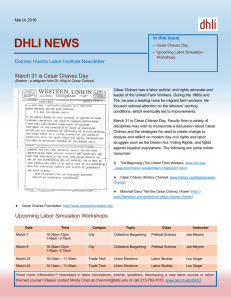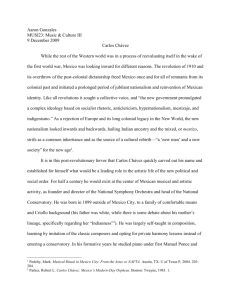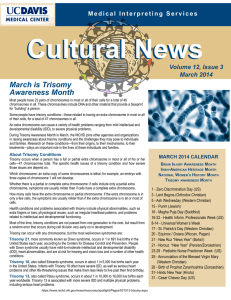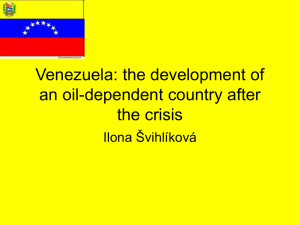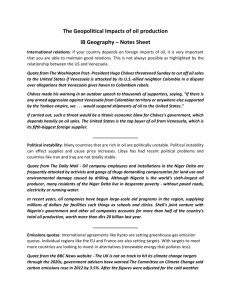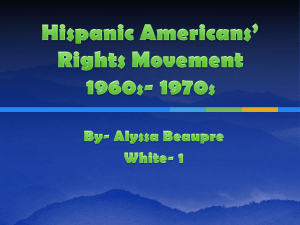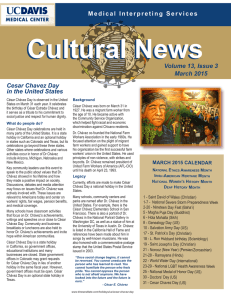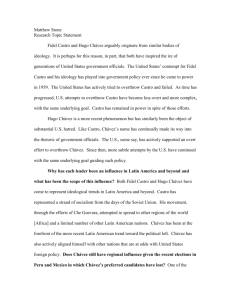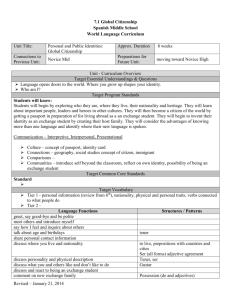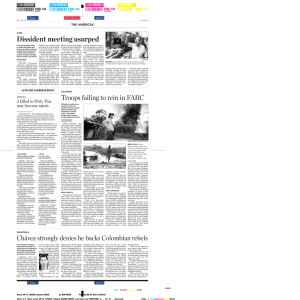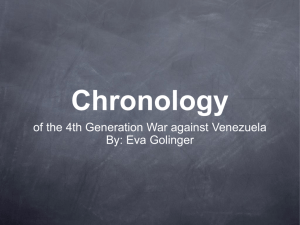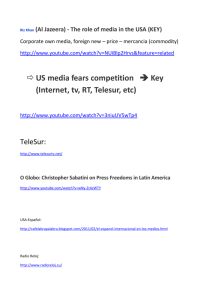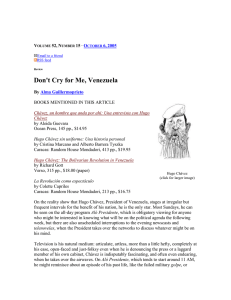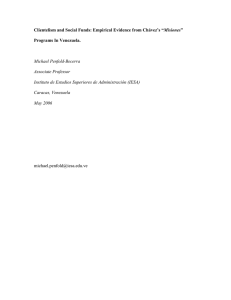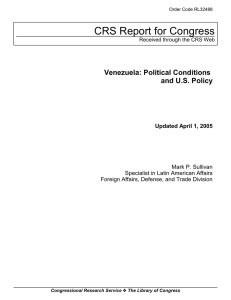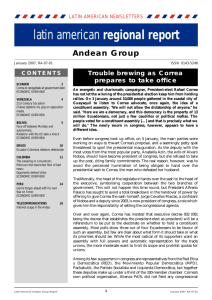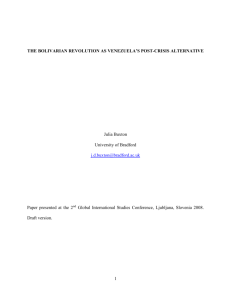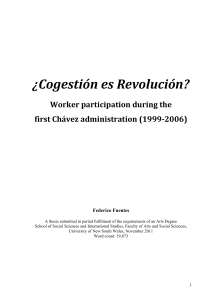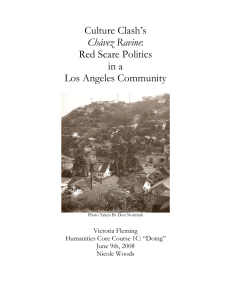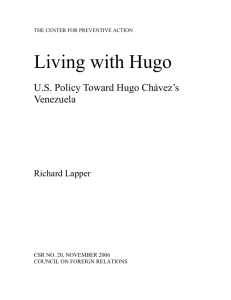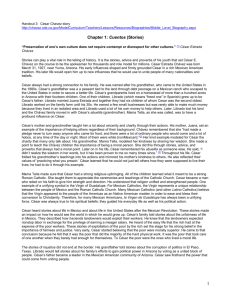César Chávez & Martin Luther King, Jr. Grade 2
advertisement
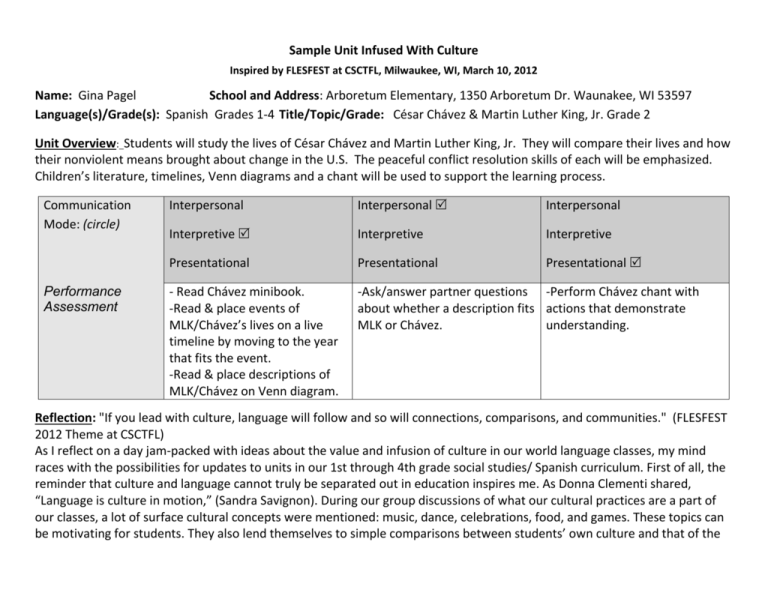
Sample Unit Infused With Culture Inspired by FLESFEST at CSCTFL, Milwaukee, WI, March 10, 2012 Name: Gina Pagel School and Address: Arboretum Elementary, 1350 Arboretum Dr. Waunakee, WI 53597 Language(s)/Grade(s): Spanish Grades 1-4 Title/Topic/Grade: César Chávez & Martin Luther King, Jr. Grade 2 Unit Overview: Students will study the lives of César Chávez and Martin Luther King, Jr. They will compare their lives and how their nonviolent means brought about change in the U.S. The peaceful conflict resolution skills of each will be emphasized. Children’s literature, timelines, Venn diagrams and a chant will be used to support the learning process. Communication Mode: (circle) Performance Assessment Interpersonal Interpersonal Interpersonal Interpretive Interpretive Interpretive Presentational Presentational Presentational - Read Chávez minibook. -Read & place events of MLK/Chávez’s lives on a live timeline by moving to the year that fits the event. -Read & place descriptions of MLK/Chávez on Venn diagram. -Ask/answer partner questions -Perform Chávez chant with about whether a description fits actions that demonstrate MLK or Chávez. understanding. Reflection: "If you lead with culture, language will follow and so will connections, comparisons, and communities." (FLESFEST 2012 Theme at CSCTFL) As I reflect on a day jam-packed with ideas about the value and infusion of culture in our world language classes, my mind races with the possibilities for updates to units in our 1st through 4th grade social studies/ Spanish curriculum. First of all, the reminder that culture and language cannot truly be separated out in education inspires me. As Donna Clementi shared, “Language is culture in motion,” (Sandra Savignon). During our group discussions of what our cultural practices are a part of our classes, a lot of surface cultural concepts were mentioned: music, dance, celebrations, food, and games. These topics can be motivating for students. They also lend themselves to simple comparisons between students’ own culture and that of the target culture. Yet, we must really work to ensure that our students make personal connections with concepts of culture that are deeper. Concepts like attitudes, patterns of interactions, preferences, etc. prepare students to be a part of the target culture in a meaningful way and can be better incorporated as students’ language levels rise. In our unit on the nonviolent social changes of César Chávez and Martin Luther King, Jr., I plan to make some adaptations to further convey the culture of Mexican American farm workers. I will have my students empathize with farm workers as they role play a day in the fields. I will explain that I will play the role of the landowner and that I would be speaking English & the farm workers would be speaking mostly Spanish- but for this exercise only Spanish will be used. I will rush them as they pick crops, deny breaks and water, simulate the spraying of pesticides as low-flying planes fly over, and remind them that their families are depending on their meager wages so that they may not quit. Because of our discussions about the importance of family in the traditional Latino culture, students would take the work seriously. These practices would be frontloaded by the children’s literature that we read about César Chávez. There would be time to discuss how it would feel to be a farm worker. As an extension activity students will be encouraged to bring in stickers and other markings from the produce that their family eats. They will see where their food is grown and will be prompted to think about the farm worker who cared for and picked the produce. I also plan to use the fruit still life artwork of Frida Kahlo to transition from this to our unit on famous Spanish speaking women including Kahlo, Celia Cruz, and Sandra Cisneros.
